ALP review: Labor is weak, risky and unpopular
Anthony Albanese has been granted a mandate to reposition Labor by junking its anti-coal rhetoric.

Anthony Albanese has been granted a mandate to reposition the Labor Party by junking unpopular Bill Shorten-era policies, dropping its anti-coal rhetoric and limiting big-spending promises to reconnect with voters in the outer suburbs and regions.
In a damning 91-page election post-mortem, party elders Craig Emerson and Jay Weatherill exposed a “cluttered policy agenda that looked risky” and criticised the ALP’s inability to adapt its strategy to combat Scott Morrison as key factors in its third successive election loss.
The review also sounded the alarm on a fracture in the party’s support base — between working people under economic pressures and those who want Labor to address progressive, political grievances. It warned “care needs to be taken to avoid Labor becoming a grievance-focused organisation” but also said the ALP should not abandon its “commitment to social justice”.
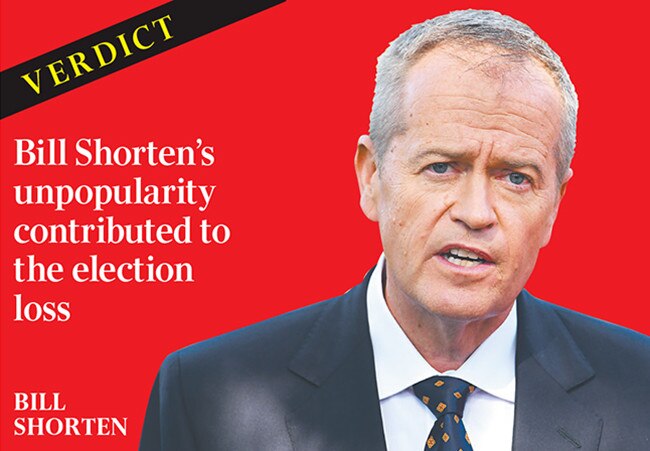
READ MORE: ‘Dud combination’ sank voter appeal | Labor’s election epiphany | Keating warns Labor over worker security | Economic credentials scared voters | Muddle scared blue-collar voters | Costly mistakes on religion and Chinese | Stumbles on costs let Coalition in | Election message ‘drowned out’ | Party had no plan to attack new PM | 26 ways to fix broken Labor
The review listed 60 “findings” but rejected an overhaul of ALP values and refused to condemn the party’s class-war tax agenda, shifting blame on to a “weak strategy”, Bill Shorten’s unpopularity and a failure to sell its policies.
It dismissed the argument that Labor’s franking credits and negative gearing tax policies “cost the party the election” but conceded the “size and complexity” of the former leader’s $100bn-plus spending spree fuelled anxieties in regional and suburban voters.
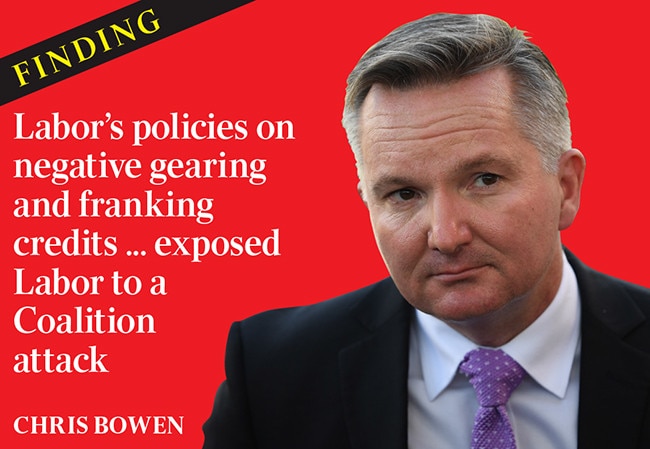
Mr Albanese, who will respond to the review in a speech at the National Press Club on Friday, is expected to endorse all 26 recommendations. Labor’s Senate leader, Penny Wong, said the party should act on all of them.
Mr Shorten, who remains on the frontbench, said he would run a different campaign if “the universe (were) to grant re-runs”. “I would campaign with fewer messages, more greatly emphasise the jobs opportunities in renewable energies and take a different position on franking credits,” he said.

The Prime Minister said last night the Coalition’s ability to “speak clearly” to aspirational Australians was a key factor in its re-election.
Mr Albanese, a long-time rival of Mr Shorten, is expected to use the review to junk unpopular policies, adopt a small-target strategy, reshape Labor’s approach to climate change, and implement a digital campaign strategy that is less focused on the leader.
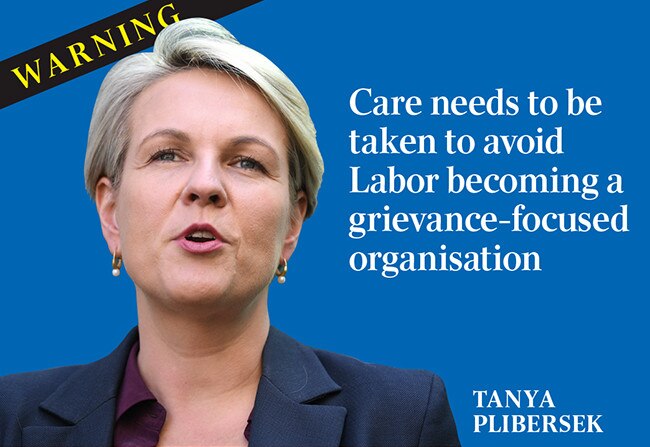
The Australian understands Mr Albanese will continue to shift Labor away from class-war rhetoric and embrace a pro-jobs, pro-growth agenda, in a bid to shift the party back to the centre and reclaim votes in Queensland and Western Australia.
The Emerson-Weatherill report, which was leaked to The Australian ahead of its release, also criticised Labor’s “ambiguous language on Adani” and anti-coal rhetoric, which triggered record swings against the ALP in regional Queensland and the Hunter Valley in NSW.
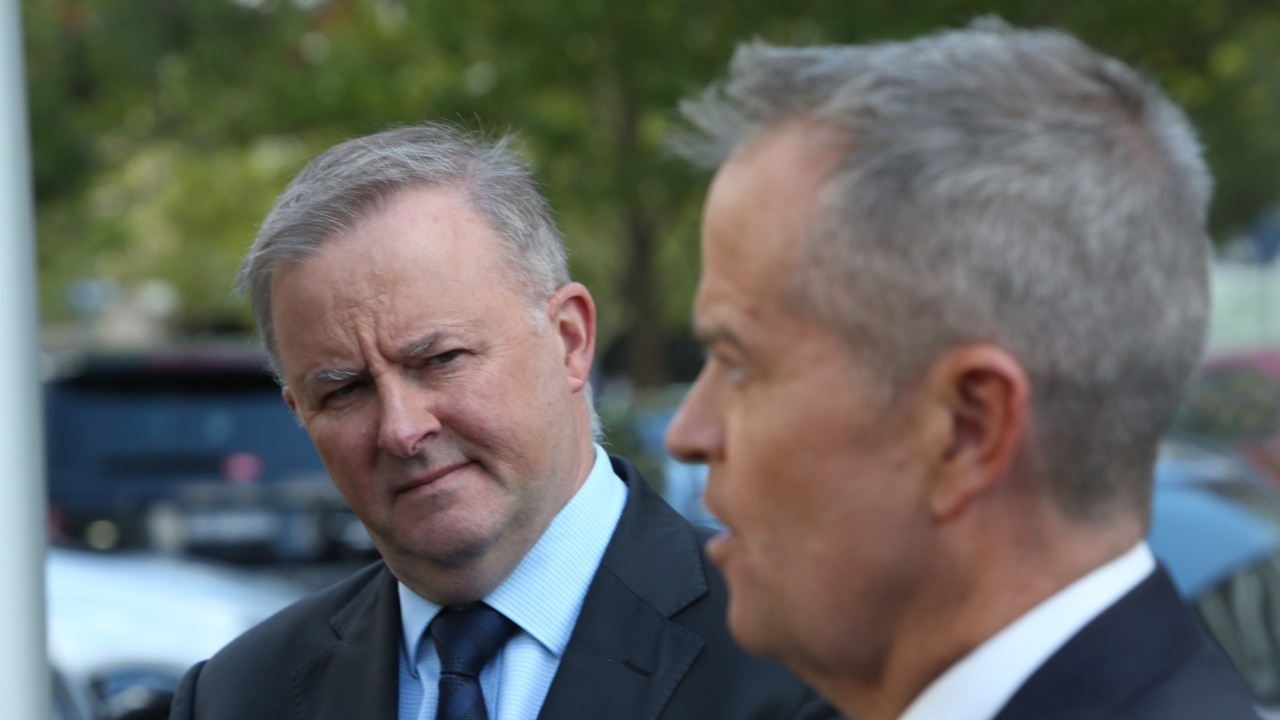
It found Chinese-Australians, Christians, Queenslanders, regional communities, low-income and outer-suburban voters swung strongly against Labor, while tertiary-educated, higher-income Australians swung strongly to the ALP.
Despite concerns from Labor MPs that it cannot win back seats in the resources states unless it overhauls its approach to climate change, the review held the line on the key policy issue.
While highlighting the ALP’s inability to “effectively discuss the cost of not acting on climate change or the job opportunities a transition to a renewable energy future could bring”, the review said “a modern Labor Party cannot neglect human-induced climate change”.
“To do so would be environmentally irresponsible and a clear electoral liability,” it said.
“Labor needs to increase public awareness of the costs of inaction on climate change, respect the role of workers in fossil fuel industries and support job opportunities in emissions-reducing industries while taking the pressure off electricity prices.”
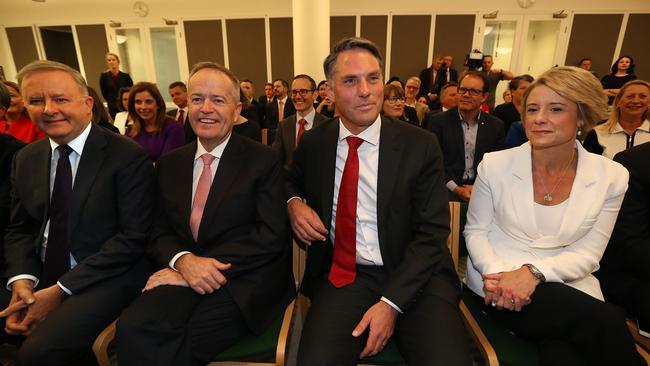
The review said Labor’s climate change policy won the party “votes among young and affluent older voters in urban areas”.
Mr Shorten, who believes the review unfairly focused on his unpopularity, received a briefing from Dr Emerson and Mr Weatherill on Thursday morning before the review’s release.
He blamed Clive Palmer and the Liberal Party for tarnishing “my public standing” and said the election was not a “landslide”.
Mr Weatherill, a former South Australian premier, denied being pressured to water down criticism of Mr Shorten, declaring he had always believed the former leader’s unpopularity was “part of the story”. “We arrived at a conscientious view based on the evidence that Bill’s leadership made a contribution to the loss, not the only contribution, but part of the story,” Mr Weatherill said.

Dr Emerson said Mr Shorten had been “carpet bombed by Clive Palmer and quite a lot of money from the Coalition who targeted him very hard”.
The former trade minister said Labor needed to win more votes in Western Australia, Queensland and in the regions. “Labor can’t just be a city-centric party,” Dr Emerson said.
Mr Weatherill said he had urged against Labor watering down its climate change action ambition, declaring it should be a “bedrock principle” that “cannot be abandoned”. “The Labor Party must continue to stand for strong action on climate change,” he said.
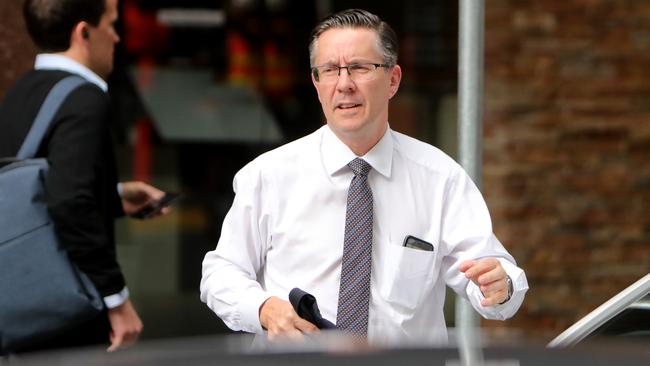
He added Labor must do better at “knitting the constituencies” of working-class people and inner-city progressives.
Mr Morrison accused Labor of being in denial about the policies it took to the election, suggesting the opposition “spoke down” to its traditional base. “We, I believe, spoke very clearly to the aspirations of Australians … Australians have an irrepressive optimism and I don’t think (Labor) understand that,” he told Sky News.
The review revealed polling had led Labor to believe it was “slightly ahead, when it was, in fact, behind”.
Labor deputy leader Richard Marles conceded the ALP had lost its base by failing to be “clearer” in its messaging about how the party sought to run the country and manage the economy.
Mr Marles admitted he made “some pretty clumsy comments” about coal ahead of the election, which he described as “tone deaf”.
Labor needed to tell mining communities that “coal and fossil fuels” will continue to “play a part in the Australian economy for a long time to come”



To join the conversation, please log in. Don't have an account? Register
Join the conversation, you are commenting as Logout